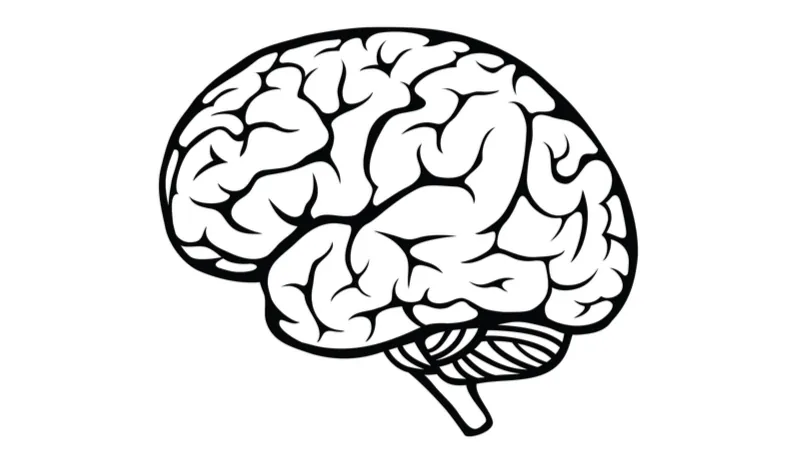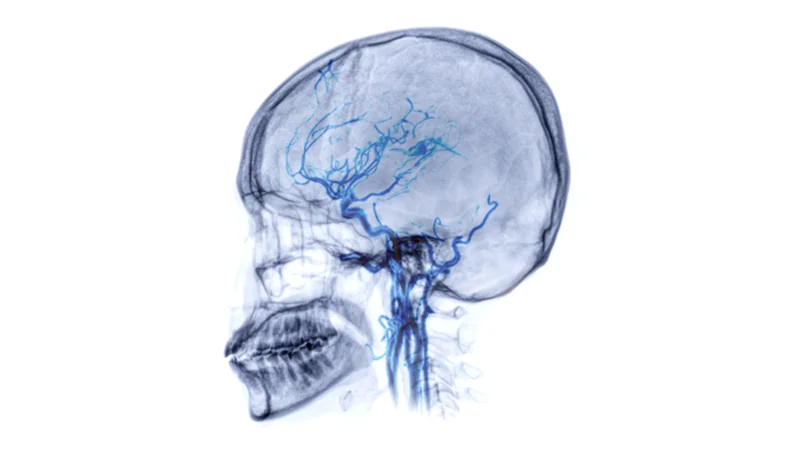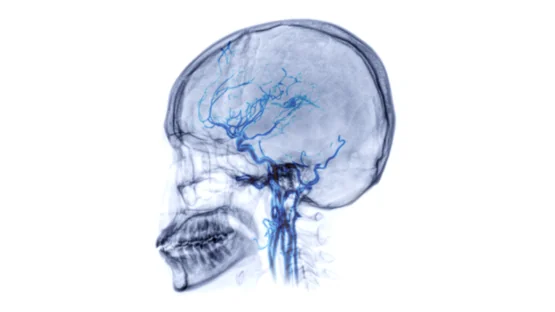Researchers publishing in GeroScience have reported that the age-related decline in IGF-1 levels is associated with neurovascular aging [1].
IGF-1 and brain vasculature

Read More
This paper begins with a discussion of neurovascular coupling (NVC) and its relationship to vascular dementia. Blood flow to the brain is extremely important, both to provide active brain regions with oxygen and nutrients and to wash out toxic metabolites. Murine studies have shown that oxidative stress is connected with the disruption of this vascular system [2].
Separate murine studies have also shown that IGF-1 deficiency in mice results in impaired NVC [3] and that specifically disrupting this signaling results in an impaired NVC response [4]. However, these are still studies involving transgenic mice. These researchers, therefore, sought to determine if a relationship between IGF-1 and NVC in human beings could be determined.
A human analysis
For this study, the younger group consisted of people with an average age of nearly 30 years, and the older group consisted of 32 people with an average age of nearly 70 years. People with a wide variety of medical conditions, including any condition that could affect IGF-1, were excluded from participation.
There was no measured difference between the sexes in IGF-1 levels. However, there was a gulf between some participants and others of the same age; some younger people had substantial amounts of this molecule, while others had levels that were more similar to members of the older group.
As expected, the older group suffered from deficiencies in neurovascular coupling, as measured by the cerebrovascular conductance index. Cerebral vasculature normally significantly responds when the brain is being put to a task, but this response was significantly diminished in the older group compared to the younger group. The basal level of cerebral blood flow was also significantly decreased in the older group.
IGF-1 and neurovascular response were found to be weakly but significantly correlated, although many (but not all) younger participants with low IGF-1 levels still enjoyed much stronger task responses than their older counterparts with similar IGF-1 levels, in both halves of the brain.
This was not true for basal cerebral bloodflow, however. The correlation between IGF-1 and this measurement was somewhat stronger, and older and younger people with similar levels of IGF-1 often, but not always, had similar amounts of cerebral bloodflow.
Conclusion
While the animal studies might have pointed towards a causal relationship, this is still only a longitudinal study, so causation in human beings cannot be proved. Given the weak correlations, it is very likely that, even if there is a causal relationship, it is only one of many factors. However, in light of the extensive preclinical evidence, IGF-1 is clearly worth exploring as a druggable, therapeutic target, particularly as part of a combination therapy. Vascular dementia is a serious issue among the elderly, and if it can be slowed or halted, it might improve the quality and length of life for a great many people.
Literature
[1] Toth, L., Czigler, A., Hegedus, E. et al. Age-related decline in circulating IGF-1 associates with impaired neurovascular coupling responses in older adults. GeroScience (2022). https://doi.org/10.1007/s11357-022-00623-2
[2] Tarantini, S., Tran, C. H. T., Gordon, G. R., Ungvari, Z., & Csiszar, A. (2017). Impaired neurovascular coupling in aging and Alzheimer’s disease: contribution of astrocyte dysfunction and endothelial impairment to cognitive decline. Experimental gerontology, 94, 52-58.
[3] Toth, P., Tarantini, S., Ashpole, N. M., Tucsek, Z., Milne, G. L., Valcarcel‐Ares, N. M., … & Ungvari, Z. (2015). IGF‐1 deficiency impairs neurovascular coupling in mice: implications for cerebromicrovascular aging. Aging cell, 14(6), 1034-1044.
[4] Tarantini, S., Balasubramanian, P., Yabluchanskiy, A., Ashpole, N. M., Logan, S., Kiss, T., … & Ungvari, Z. (2021). IGF1R signaling regulates astrocyte-mediated neurovascular coupling in mice: implications for brain aging. Geroscience, 43(2), 901-911.



